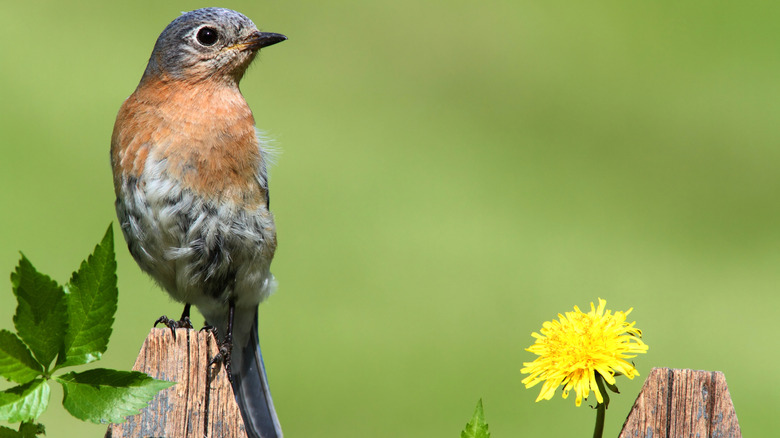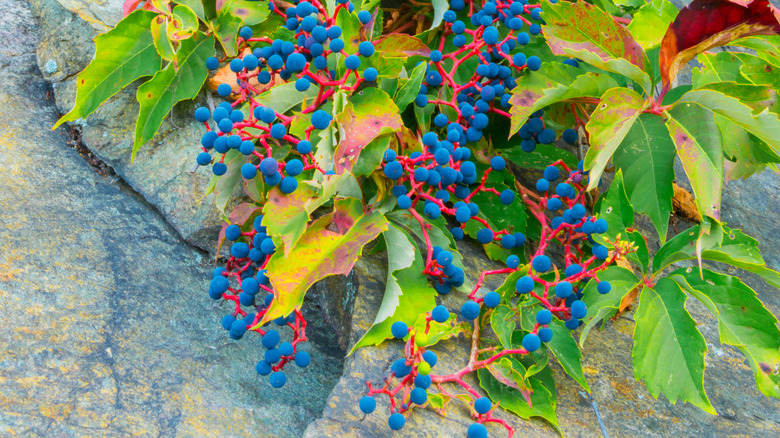Want More Wildlife In Your Yard? Here's The Ground Cover That Will Bring Them In
When cultivating a wildlife-friendly garden, ground covers are an important landscaping element — when chosen wisely, they can provide important sources of both food and habitat for birds, insects, and mammals. For those looking for a ground cover that will provide such eco-system benefits and that is native to the U.S., Virginia creeper (Parthenocissus quinquefolia) is an excellent choice.
Also known as woodbine or American ivy, Virginia creeper has green, lobed leaves made up of five leaflets that turn a lovely burgundy color in autumn. Often confused with poison ivy, this native to the eastern and central U.S. and Canada works as a ground cover since it grows roots from its vines, anchoring itself to the ground. A drought tolerant ground cover you can easily grow in your yard and garden, birds will use Virginia creeper's vines for cover and its berries for food, and deer will occasionally nibble on its foliage as well, helping to prune this vigorous vine.
How to grow Virginia creeper as a ground cover for wildlife
Perfect to use as a ground cover in USDA Hardiness Zones 3 to 9, Virginia creeper can grow in many different soil types and thrives in average to dry moisture conditions. And while these vines will tolerate full shade, they only produce excellent fall color when grown in full sun to part shade. Combine this ground cover with other native shrubs, trees, and perennials, and your garden will be a hotspot of biodiversity.
Before you add this vine to your yard, be wary of making one of the mistakes everyone makes when growing ground covers – in this case, not considering the plant's size at maturity. The vines of this plant can reach 50 feet in length, allowing Virginia creeper to easily enshroud shrubs and trees if not pruned, so be prepared to use your garden shears as needed to keep this vine's growth in check. Or if the prospect of constant pruning is giving you pause, choose an alternative with less vigorous growth such as trumpet honeysuckle (Lonicera sempervirens), one of the ground covers that is great at providing erosion control and is also a wildlife favorite.

